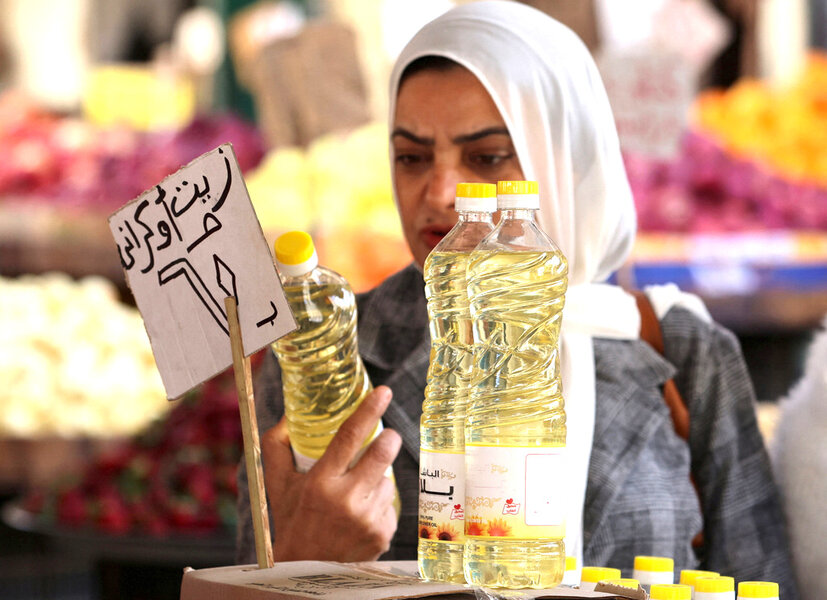A life buoy for an Egypt sinking in red ink
Loading...
One reason for giving foreign loans to countries with faltering or even corrupt regimes is to coax them into honest and fair governance. The loans often come with a condition for belt-tightening. In a multibillion-dollar agreement brokered yesterday to lift Egypt out of an economic crisis, the International Monetary Fund has flavored a demand for prudence with subtle sweeteners.
The deal, which remains to be approved by the IMF board, ties $8 billion in loans to stabilizing Egypt’s currency, bringing down inflation, and wresting the economy from control by the state and military. Cairo has been dragging its feet on such measures for years. What may have brought a change now is the lending agency’s acknowledgment that the conflict in neighboring Gaza has imposed “significant macroeconomic challenges” on Egypt.
Such empathy carries a hint of gratitude for Cairo’s ongoing work to end the war in Gaza and return Israeli hostages held by the militant group Hamas. A key lesson from decades of international lending, said former World Bank Director Khalid Ikram, is the need “to have a more humble approach.” Sometimes that means tempering “economic purity with the politically doable,” he added.
Like other governments in the Middle East, Egypt has sought to avoid taking economic steps that might lead to a popular uprising, such as the Arab Spring of the early 2010s. The country’s current crisis is rooted in runaway spending on infrastructure projects and policies that protected the military’s influence in state enterprises. From 2014 to 2022, under President Abdel Fattah al-Sisi, Egypt’s foreign debt rose from $40 billion to $155 billion.
Talks between the government and the IMF were stalled from late 2022 until last month, when Cairo brokered a $35 billion deal with the United Arab Emirates for investments in urban development. The change in Egypt’s balance sheet offered an opening for renewed dialogue with the IMF. Egypt raised its interest rates by 600 basis points yesterday and floated its currency to reflect its true value. The IMF reciprocated immediately, more than doubling a stalled rescue program.
Those measures may help offset the financial impact of the Israel-Hamas war, including lost revenue from a decline in ship traffic through the Suez Canal due to attacks on ships by Houthi rebels in Yemen. More important for ordinary Egyptians, the measures coaxed concessions from an unpopular government that economists say will boost private enterprise – and a note of humility from the IMF.
“Egypt’s international and regional partners will play a critical role in facilitating the implementation of the authorities’ policies and reforms,” the agency stated. “The IMF team would like to thank the authorities for the constructive dialogue, warm hospitality and strong cooperation to finalize the reform package.” In diplomacy, soft gestures are often persuasive.







